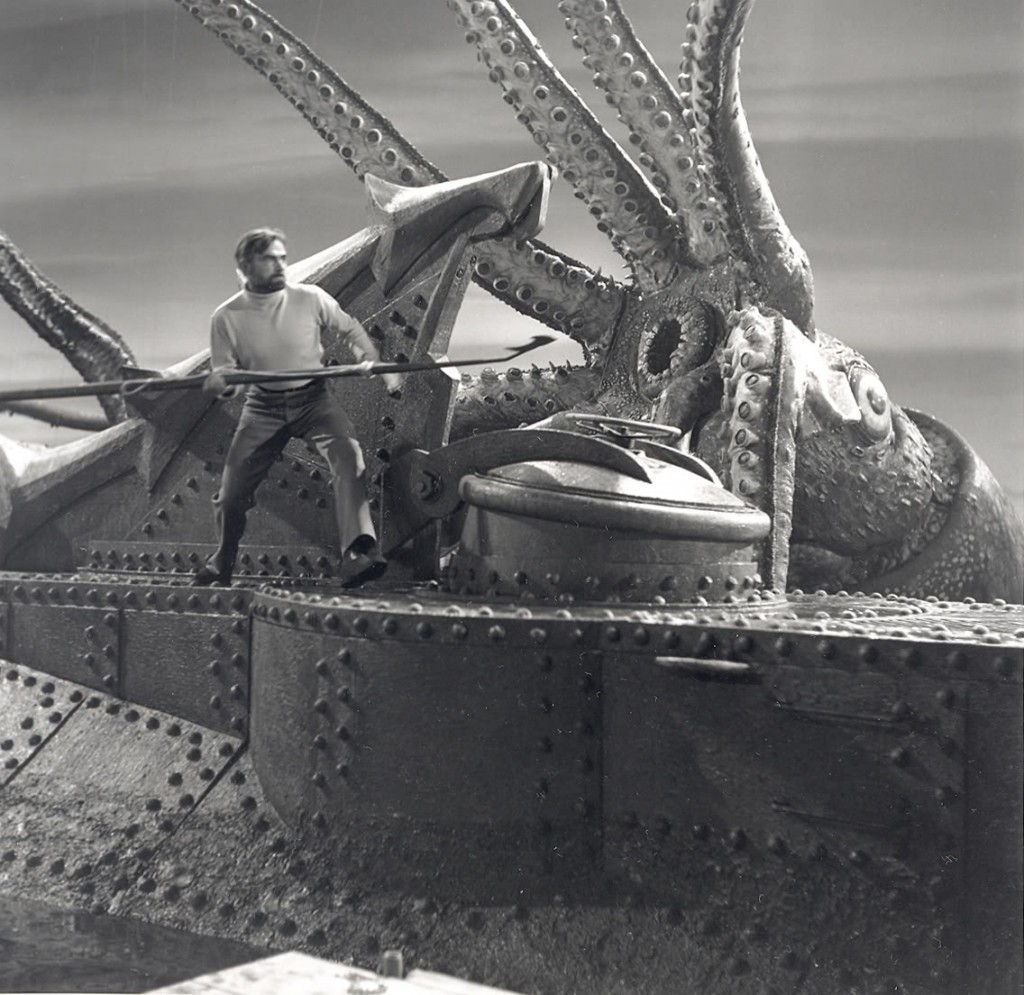Roman Octopus: Sewer Gator or Godzilla? July 10, 2015
Author: Beach Combing | in : Ancient , trackbackWhat is the earliest instance of an exotic animal (gator etc) in a sewer? Well, go online and you will read about New York legends from the 1920s and some isolated cases from other cities in the US from the second half of the nineteenth century. But a couple of years ago, in a fascinating article,* Camilla Asplund Ingemark set out a classical reference that might drag the legend back some two thousand years. The following is from Aelian: no Greek, sorry.
Octopuses gradually grow huge, and approach cetaceans and are even counted amongst them. Indeed I hear of an octopus – in Dicaearchia (Puteoli) in Italy – whose body was swollen and which came to despise and to disdain the food from the sea and its pasture. Then it approached land and plundered food, also from dryland. Accordingly, through a certain hidden sewer that discharged the refuse of the aforementioned city into the sea, it swam up to a house lying by the sea, where Iberian merchants stored their cargo, pickled fish from that region in stout vessels; and so it threw its tentacles and gripped the earthenware so that the vessels were broken, and consumed the pickled fish. As the merchants entered and saw the fragments of pottery, and understood that a large quantity of their cargo had disappeared, they were astounded and could not guess who had despoiled them, as the doors were free of tampering, the roof was undamaged, and the walls had not been dug through. They also saw the remains of the pickled fish that had been left behind by the uninvited guest. They decided that one of their servants, the most courageous, would be armed and lie in ambush in the house. During the night the octopus creeps up to its customary meal and clasps the vessels just as a prize fighter taking a stranglehold on his antagonist, by force and holding very firmly, and so the robber, so to say, the octopus, crushed the earthenware very easily. It was at the full-moon, and the house was illuminated, and all could be taken in at a glance. The servant did not attack on his own, as he was afraid of the beast (for it was too great for one man), but early in the morning he explains what has happened to the merchants. They do not believe their ears. Then some remembered the greatness of their losses and were for venturing the hazard and were eager to meet the enemy in battle; others, in their thirst for this novel and incredible sight, locked themselves [into the house] as voluntary allies together with the former. Then in the evening, the thief again comes to visit, and hastens to its customary dinner. Then some block up the conduit, others arm themselves against the enemy, and with choppers and sharpened razors cut through the tentacles, as vine-dressers and woodcutters lop off the young shoots of an oak. Having cut its strength they killed it after a long time with toil and not a little labour, and the strange thing was that merchants hunted the fish on land. Mischief and craft plainly seem to us to be characteristic of this animal.( Aelian, De natura animalium 13 .6)
Beach has serious doubts about the reasonableness of conflating this legend with the tales of crocodiles in sewers. The point of the legend of the New York gators is that an exotic population has been introduced into the city and is living in a parallel world beneath the city, but out of contact with it. The point of this story (and another story that CAI quotes from Pliny where an octopus enters an orchard to steal fruit) is that the boundary between land and sea has been breached. The Greeks and Romans were obsessed with the idea of symmetry and order: anything that broke the natural division into night and day, sea and land etc etc broke the very meaning of the universe. If this octopus has any descendants in the modern world of myth it is to be found in the Godzilla legend, a beast from the depths comes into our world to wreak havoc. The sewer is just a chance reference here. If it was instead, say, an irrigation channel the connection would not have been made. Other thoughts on the applicability of urban legends to the ancient world; and also, would an octopus have behaved in this way? drbeachcombing AT yahoo DOT com
*Journal of Folklore Research 45 (2008)



